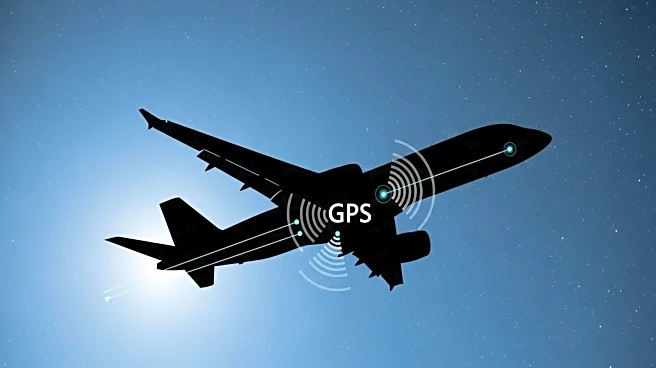What's Happening?
The European Commission has reported that the navigation system of a plane carrying Ursula von der Leyen, the Commission President, was disrupted due to suspected Russian interference. This incident occurred as von der Leyen was traveling to Bulgaria as part of a tour of eastern EU states to discuss defense readiness. The disruption, described as 'GPS jamming,' forced the pilots to rely on paper maps to land safely at Plovdiv Airport. The Bulgarian authorities suspect that this interference was a deliberate act by Russia, although the Kremlin has denied these allegations. The European Union Aviation Safety Agency (EASA) and the International Air Transport Association (IATA) have previously warned about the increasing frequency of such incidents, which pose significant challenges to aviation safety.
Why It's Important?
This incident underscores the ongoing geopolitical tensions between Russia and the European Union, particularly in the context of Russia's actions in Ukraine. The suspected GPS jamming highlights the vulnerabilities in aviation navigation systems and the potential risks to flight safety. It also reflects broader concerns about Russia's alleged strategy to disrupt and undermine European security. The European Union's response, including plans to deploy additional satellites to detect GPS interference, indicates a commitment to enhancing defense capabilities and supporting Ukraine. This development could lead to increased scrutiny and regulatory measures in the aviation industry to mitigate such risks.
What's Next?
The European Union is likely to continue its efforts to strengthen its defense and security measures in response to these threats. This may involve increased collaboration with international aviation bodies to address the challenges posed by GPS jamming. Additionally, the EU's plans to deploy more satellites could enhance its ability to monitor and counteract such interference. The incident may also prompt further diplomatic discussions and potential sanctions against Russia if evidence of deliberate interference is established. Stakeholders in the aviation industry may need to adapt to new safety protocols and technologies to ensure the continued safety of air travel.
Beyond the Headlines
The incident raises ethical and legal questions about the use of technology in geopolitical conflicts. The normalization of GPS jamming as a tactic in such conflicts could lead to broader implications for international aviation law and the rules governing the use of satellite navigation systems. It also highlights the need for robust cybersecurity measures to protect critical infrastructure from similar threats. The situation may prompt a reevaluation of international agreements and cooperation in addressing the misuse of technology in warfare and espionage.









